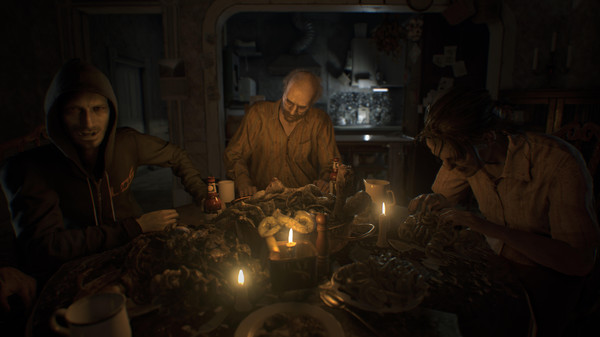When you break it down, there are two major competing ideologies when it comes to modern game design. On the one hand, you have your open-world, player-driven experiences. In these titles, developers craft expansive sandboxes of potential experiences and give the player a number of ways to interact with their environment. Games like The Elder Scrolls, Grand Theft Auto, Far Cry, and Assassin’s Creed give players unique stories and memories, things to laugh about or share with friends. These “high expression titles,” as Warren Spector once called them, are often considered the more forward-thinking, or pure, examples of game design.
But their successes do not mean that we should discount the strengths of games that eschew freedom in pursuit of more explicitly crafted experiences. Looking at the output of Naughty Dog, one of the most renowned developers, we can see how powerful these directed experiences can be. The Last of Us tells an incredible story, perhaps the best we’ve seen in the industry, by tying the game’s progression and gameplay scenarios to the feelings of tension or relief inherent in the story beats.
The ability to dictate the experience of the player works wonders, as well, in Uncharted 2, one of the most perfectly crafted game campaigns ever produced. There’s a clear commitment in this title to never let any particular scenario overstay its welcome, and the way that the game transitions between these scenarios is always complementary. When you’ve been sneaking too long, you can expect a long shooting segment, or a chase scene, to liven things up. When you’re tired of shooting things, you’ll be given some down time to explore an environment and get to know another character. This all leads to player experiences that are similar across the board, but far stronger and more focused than any sandbox title can be.
Resident Evil 7 falls firmly into this latter category of game design, playing the audience like a fiddle. It’s an extraordinarily confident game, one that knows exactly how to upset player expectations and when to shift gears. Like Uncharted 2, it is an experience that you can return to again and again, ever more confident and knowledgeable about the game’s obstacles, yet still thoroughly it. The sheer game-craft on display is immaculate.
The first hour in particular is outstanding, subverting its central premise within minutes and escalating in intensity rather than taking the time for a slow-burn reveal. When the game does slow down, the sheer audacity of the previous segment lends the new scenario a feeling of dread that would be less apparent had the two been switched. It’s a bold way to structure a game, but is essential to making Resident Evil 7 feel special even after it starts to resemble the series’ original formula.
Somehow, the game manages to be an enormous step forward for the Resident Evil franchise AND a successful return-to-form, taking the puzzles and survival formula of the first three games and applying them to a more modern, first-person-stealth experience. The two models are stunningly compatible here; players need to balance inventory and plan out their routes through the environment, while the creeping dread of a stealth experience and the claustrophobic nature of the first-person perspective enhance the atmosphere. It’s not only effective, but it’s all confident in the way that its predecessor, the unfocused and wildly flawed Resident Evil 6, never was.
But again, Resident Evil 7 draws strength from its ability to switch things up before they become dull. While I won’t outright spoil the later parts of the game, Lucas’s section feels like a breath of fresh air when it comes into play, and the more action-oriented late-game segments allow for some player empowerment after hours of barely scraping by. Smart, too, is the way that the game draws from different horror influences depending on its scenario. Resident Evil 7 is at times a love letter to The Evil Dead, The Texas Chainsaw Massacre, The Blair Witch Project, Saw, and even other video games, like P.T. and FEAR. But it never simply tosses these references in for the sake of having references; the developers understand what drive these experiences and use them as a shorthand for a wide variety of gameplay.
Resident Evil 7 is also true to its lineage by including lots of unlockables and incentives for replay. These challenges, such as speed-runs and an extra-hard mode (including limited-game-saves, like in the old-school titles), take the game’s relative brevity and turn it into a strength. Like in the classic games, which rewarded players for overcoming its challenges with awesome items like the infinite-ammo rocket launcher, achieving one goal may give you a tool that helps make another challenge more viable. The only complaint I have about this structure is that completing certain challenges ultimately hurt the game’s replayability, because the player is too overpowered. Sure, it’s possible to ignore the infinite ammo, or the circular saw, that you’ve got sitting in your inventory, but knowing they’re there cuts down on the tension of future playthroughs.
This, however, is a minor complaint. While this year is front-loaded with enormous open-world experiences like Horizon, Zelda, and Mass Effect, Resident Evil 7 is a stunning reminder that there is no one way to build a game. It hearkens back to a classic formula that is powerful and effective to this day while forging its own path forward. This is an excellent game.
